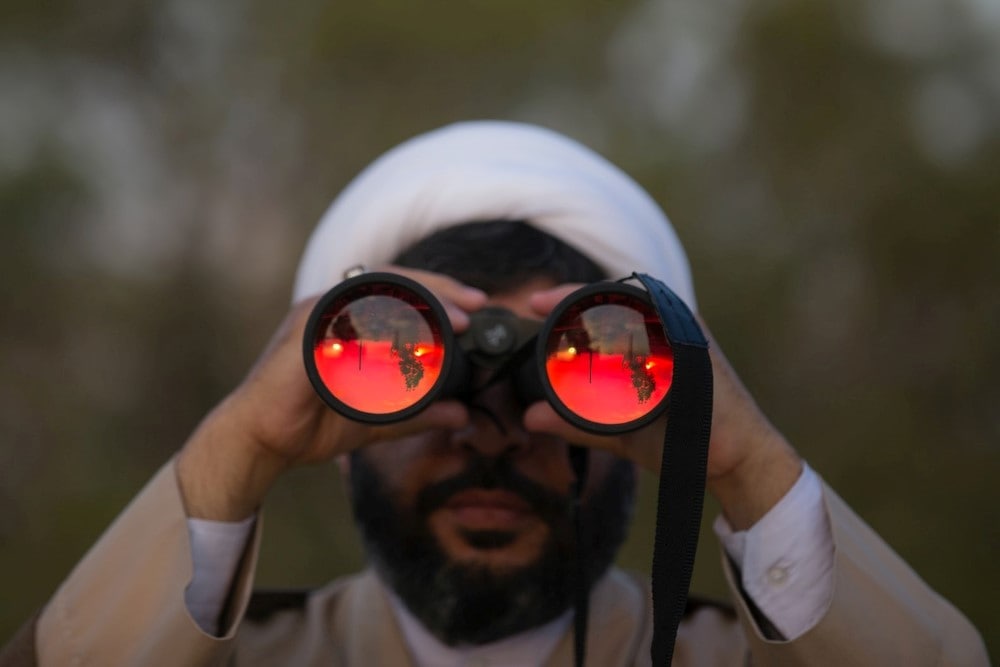Iran avoids heavy retaliation for IDF attacks so Israel will let its guard down, former general warns; Tehran will then unleash a devastating war from all fronts.

Major General Yitzhak Brik (ret.) is a man on a mission. For years, he has been trying to convince Israelis that the country faces a grave threat. Last week, Brik warned that Iran is lulling Israel into a false sense of security, while waiting for the right moment to launch a deadly missile war.
In the past decade, the Iranians focused on building a huge arsenal of missiles around Israel , he wrote. By now, more than 200,000 missiles in Lebanon, Gaza, Iraq, Syria and Yemen are aimed at Israeli cities and key strategic targets.
Israeli defenses cannot counter this missile power, and ongoing IDF airstrikes in Syria are making little strategic difference, Brik says. Iran continues to smuggle precision-missile components to Hezbollah via land, sea and air routes and fully controls Syria, he wrote.
Brik’s key argument is that Iran is not retaliating against Israeli strikes as part of a sophisticated strategy. Tehran wants to first complete its missile project and surround Israel with massive firepower before striking. The Iranians are very patient and are waiting for the right timing, he says.
“Their goal is to lull us to sleep, so they can quietly complete their work to establish a missile arsenal around us,” he wrote. Therefore, Iran wants to descalate tensions for now and avoid a premature war, he says.
Same Effect As Nuclear Bomb
When war erupts, Iran will launch thousands of missiles at Israel daily and inflict heavy damages, Brik says. He warns that this will have the same effect as a nuclear bomb, without the radioactive fallout. The Iranians believe that the world will accept such war as legitimate, he wrote.
In a related Facebook post, Brik added that Israel faces a “nightmare,” and that a devastating war would set the country back 30 years. He warned that this catastrophe would exact a much graver human and economic toll than the current Coronavirus crisis.
Brik expects missiles to explode in Israel’s largest population centers: the Tel Aviv area, Jerusalem, Haifa, and Beersheba. While some missiles will be intercepted, others will hit power stations, water infrastructure and airports, and cause tremendous ruin, he warned.
Iron Dome can handle a limited number of smaller rockets, but Israel has no effective answer for heavy missiles, Brik said in a previous interview. Israel’s defenses against ballistic missiles are very expensive and not meant to intercept huge barrages, he noted. Attacks on Tel Aviv will cause major destruction and death even if the missiles are not precise, he said.
Is Brik Exaggerating?
Notably, Brik is not a lightweight. He is a decorated war veteran who served as a division commander in the armored corps, and as the chief of Israel’s military colleges. In his last position as IDF ombudsman, he closely investigated the state of the military and repeatedly warned that Israel is ill-prepared for war.
However, military officials have dismissed Brik’s warnings, claiming that he is greatly exaggerating. While there is room for improvement, the army is well prepared for war, the critics say. Defense expert Omer Dostri argues that Brik is missing the bigger picture, and that the IDF is in better shape compared to the past.
But some key officials have taken Brik’s warnings seriously. Former Defense Minister Naftali Bennett met with Brik and praised him. IDF Chief Aviv Kochavi is reportedly working to fix some of the flaws identified by the retired general.
In the past year, the IDF upgraded its capabilities through repeated war drills. The army also stocked its elite units with newer and more powerful weapons and equipment in preparation for ground maneuvers. This week, the Air Force unveiled a new Special Forces squadron for operating behind enemy lines.


